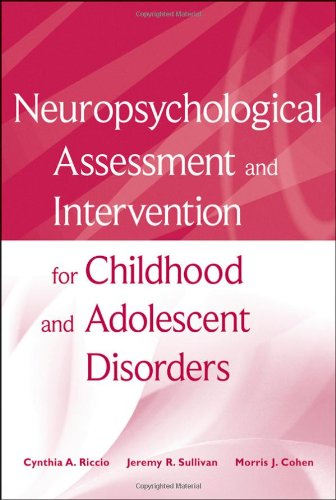

Most ebook files are in PDF format, so you can easily read them using various software such as Foxit Reader or directly on the Google Chrome browser.
Some ebook files are released by publishers in other formats such as .awz, .mobi, .epub, .fb2, etc. You may need to install specific software to read these formats on mobile/PC, such as Calibre.
Please read the tutorial at this link. https://ebooknice.com/page/post?id=faq
We offer FREE conversion to the popular formats you request; however, this may take some time. Therefore, right after payment, please email us, and we will try to provide the service as quickly as possible.
For some exceptional file formats or broken links (if any), please refrain from opening any disputes. Instead, email us first, and we will try to assist within a maximum of 6 hours.
EbookNice Team

Status:
Available0.0
0 reviewsNeuropsychological Assessment and Intervention for Childhood and Adolescent Disorders focuses on the neuropsychological assessment and evidence-based practices available for assessing and treating children living with the etiological and neurological components of various disorders. Each chapter provides one or more case studies along with helpful background information, assessment results, and recommendations based on assessment data.
Bridging science and practice, the book reviews the scientific literature, research on clinical implications, and evidence-based treatment of such disorders as:
Dyslexia and Dyscalculia
Specific Language Impairment/Dysphasia
Autism Spectrum Disorders
Attention-Deficit/Hyperactivity Disorder
Tourette Syndrome
Traumatic Brain Injury
Childhood Cancer
Epilepsy
Cerebrovascular Disease
Low Birth Weight
Environmental Toxin Exposure
Neurotoxins, Pregnancy, and Subsequent Disorders
Chromosomal Anomalies
Neurocutaneous Disorders
Metabolic Disorders
Each case study complements the content of each chapter by illustrating how the assessment process can inform intervention efforts for children. In addition, the cases humanize the effects of various disorders and demonstrate the usefulness of neuropsychological information in treatment and intervention planning, especially within children's educational and social contexts.